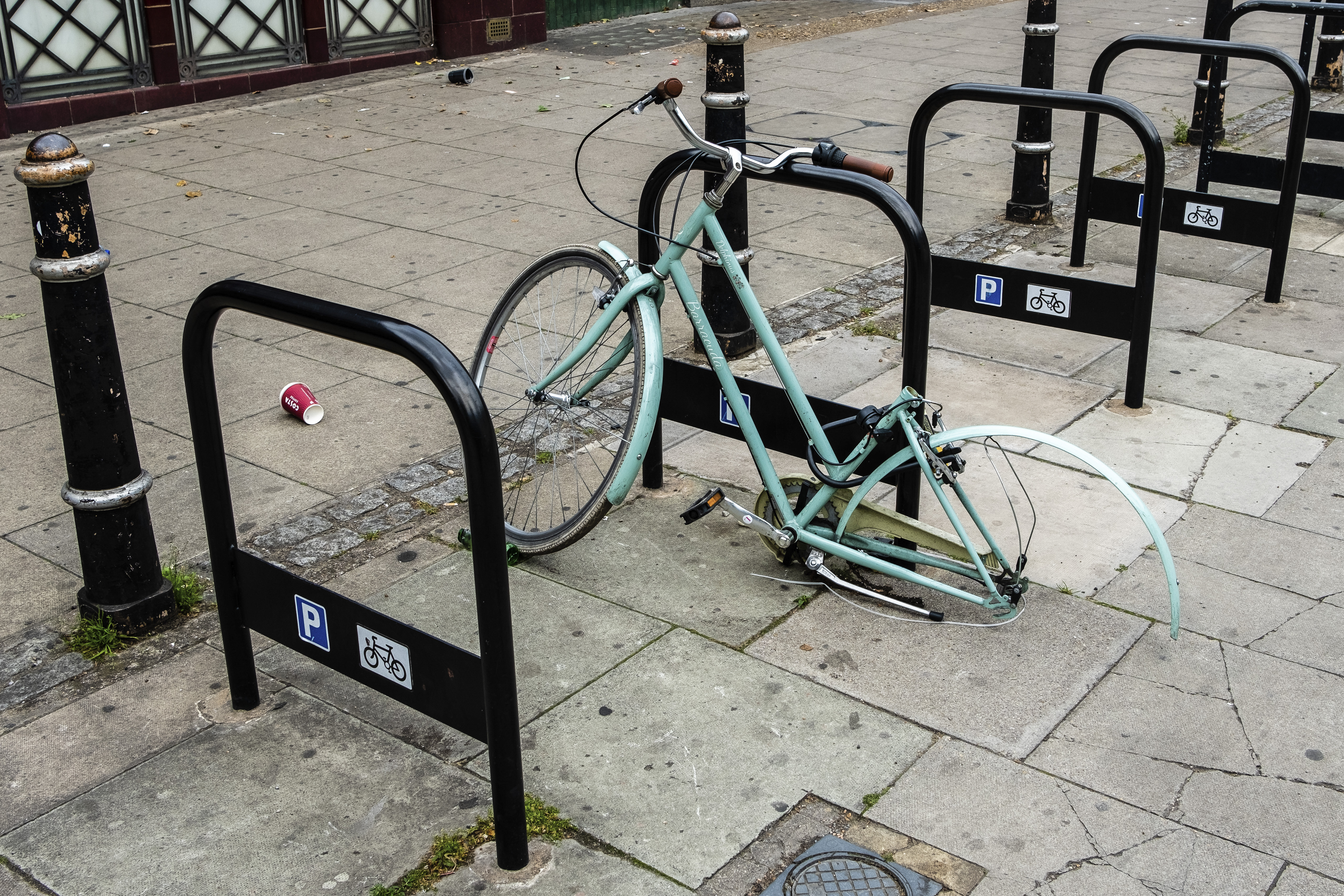Bike theft can ruin lives, I know it, and something needs to change
There were more than 60,000 victims of bike theft in England and Wales last year, 25% of whom gave up cycling completely


The latest race content, interviews, features, reviews and expert buying guides, direct to your inbox!
You are now subscribed
Your newsletter sign-up was successful
My bike was stolen last year in Leeds. I’d left it locked outside the Tetley art gallery, and one pint and 45 minutes later, I returned to find it gone. No trace was left; the car park remained undramatically empty. Through lumped throat I recalled its features to the police: the hideous brown frame I’d come to love; the grips my friend had won at a downhill competition when he was a kid; the handlebar donated by a resourceful friend. It felt irrational to cry about a £60 bike, but for me the bike meant freedom. It was the tool I needed to progress in the sport I was beginning to love, that challenged and terrified me. So, what is the psychology of loss, when it is connected with a theft? More acutely, what happens when the thing stolen is a bike?
When I asked friends and fellow cyclists how it felt when their bikes were stolen, most people reported feeling unexpectedly, and overwhelmingly sad, outraged, and violated. Elisa’s bike was stolen from her house whilst she was away for a week, the bike thieves bypassing most other valuables. Cath had her bike taken a few years ago and has "never quite got past that feeling of injustice and being violated". Mischa rode his bike for an hour and a half each day to university in London, the commute a cherished ritual. When it was stolen, he was left bike-less for six months and his mental health plummeted as a result. It is not irrational to mourn the loss of a bike, but - sadly - normal.
The theft of a bike is twofold. Like all thefts, it is a crime of possession: the theft of something that belongs to you. But a bike is not just a bike, it is an object transformed by a body into a tool for transport, or to send you skidding down hillsides for pure enjoyment.
Exercise related endorphins are intimately connected to our understandings of bikes, when ridden enough. Neuroscientist Wendy Suzuki and others have found that even after a small aerobic workout of thirty minutes, the levels of neurotransmitters - including serotonin and dopamine - in the brain increase, raising mood and energy levels. As these neurotransmitters rise in the brain, our connection with the bike we are riding increases. Exercise doesn’t just make us feel good, it can literally change our brain. Sustained exercise can cause the hippocampus to grow, improving long term memory, and the prefrontal cortex can become enlarged too.
These recorded benefits are enhanced by the ‘endowment effect’. We place a greater value on objects once we understand them as ours, especially when they hold ‘symbolic, experiential, or emotional significance’. Bikes become signifiers of a kind of exercise-induced euphoria: I know that riding my bike will clear away the cobwebs in my brain. I also know my bike. I know how it feels under me, I know how much pressure to apply on the breaks, which gears to avoid, and which will hammer me home. We build relationships with the things we own, especially when we know they have real consequences on our mental and physical health.
“My two mountain bikes got stolen last December,” said Cheryl from the online forum ‘Women’s Mountain Biking Experience’, “and my life hasn’t been the same since.” She hasn't been able to afford replacements.
Between 2023 and 2024, 66,960 bikes were reported stolen in England and Wales, according to the Office for National Statistics (though the true number could be well over double, with an estimated 51-71% of thefts going unreported). Bike theft is a lucrative business; the average cost of a stolen bike sits at £400, with only 1% of these cases resulting in police action. With only 11% of stolen bikes returned to their owners, many lose hope of ever getting their bike back.
The latest race content, interviews, features, reviews and expert buying guides, direct to your inbox!
I am one of the lucky 11%. After realising that my bike was gone, I filed a report with West Yorkshire Police. Within the hour, they informed me that, as there was no suspect, the case had been shelved. But a few weeks later, I came across my bike on Facebook Marketplace. Beautiful, brown, and sparklingly clean, it was my Kona. Immediately, a plan was hatched: I had already messaged the seller, and my friends were gathering muscle to drive round to the guy’s house and guilt trip him into returning it. Fool proof. After updating the police, they warned my friends off any attempted heroism (to my friends' relief), tracked down the right house and picked it up in the midst of an unseasonal early November snowstorm.
“I dare say we will not get a conviction for the seller, they have given an account which can’t be proven or disproven,” the police wrote to me in an email. Understaffed and overworked, the police often don’t have the people power to adequately process every bike theft.
I know I was lucky to get my bike back. Lots of people never do, with a quarter of those having lost a bike unlikely to ride again, and 66% cycling less than they did before the theft. There is a violation connected to the theft of a bike. It is never just a bike that is stolen, but the joy we come to associate with it. Someone took that away, and for many, this is an irrevocable theft.
But things are changing. Bike Register, the police approved ‘National Cycle Database’, has so far amassed details of 1,300,000 bikes to guard against their theft. Scottish Police launched the ‘Pedal Protect’ campaign in 2021 in collaboration with the database, where they host ‘bike marking’ events and work with bike shops to encourage clients to register their bikes at point of purchase. In the first year of operating, the project reduced bike theft by 25%. Cycling Weekly’s own news editor was stopped on the Bristol to Bath bike path just yesterday by police encouraging cyclists to register their bikes with the scheme, now rolling out across the UK.
So, there is hope! More needs to be done to combat bike theft, but in the meantime register your bike, and keep those frames double-locked!

Meg is a news writer for Cycling Weekly. In her time around cycling, Meg is a podcast producer and lover of anything that gets her outside, and moving.
From the Welsh-English borderlands, Meg's first taste of cycling was downhill - she's now learning to love the up, and swapping her full-sus for gravel (for the most part!).
You must confirm your public display name before commenting
Please logout and then login again, you will then be prompted to enter your display name.